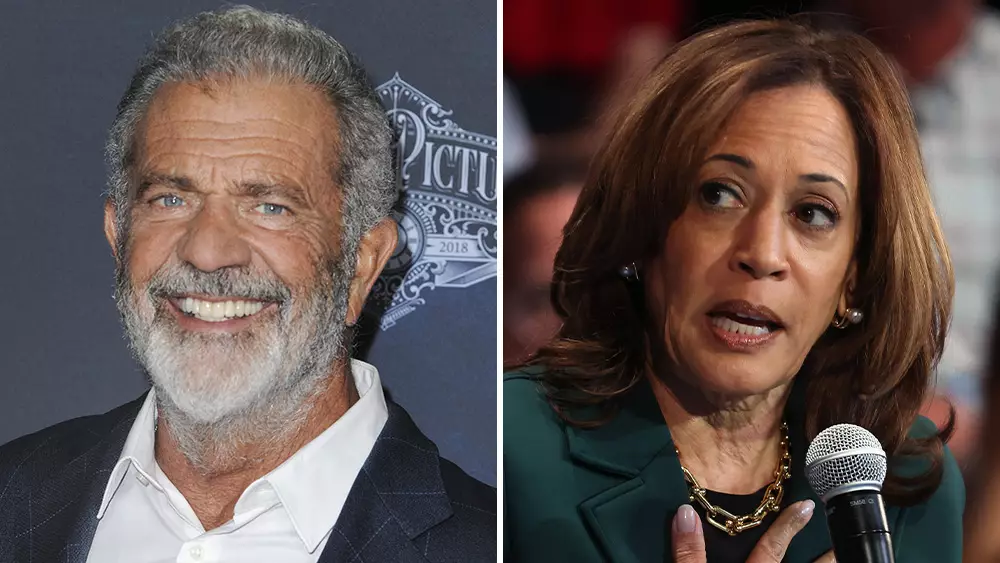In a striking moment that stirred controversy, actor and director Andrew Garfield recently expressed admiration for his *Hacksaw Ridge* director, Mel Gibson, highlighting what he referred to as Gibson’s “beautiful healing with himself.” However, this commendation has encountered a significant challenge following Gibson’s latest public comments regarding Vice President Kamala Harris. Filmed at the Los Angeles airport by TMZ, Gibson described Harris as having “the IQ of a fence post” while openly endorsing former President Donald Trump for a return to the White House. Such remarks come at a time when the political atmosphere is charged, and public figures’ statements are scrutinized more than ever.
Gibson’s comments, laden with derogatory undertones, not only reflect his political leanings but also raise questions about his previous statements and actions that have drawn public ire. His declarations echo past criticisms aimed at Harris by Trump, who has repeatedly insulted her intelligence in brash terms, further polarizing political discourse in America.
The comments made by Gibson are reminiscent of his controversial history, marked by instances of public misconduct and bigoted remarks. His infamous DUI arrest in 2006 led to a tirade against a police officer that included antisemitic remarks, and his attempts at personal redemption have been critically observed against the backdrop of these repeated lapses in judgment. The derogatory nature of his comments about women and particular ethnic groups highlights a troubling consistency in his public persona that contrasts starkly with any narratives of self-improvement.
In addition, the actor’s past comments and alleged actions later re-emerged during interactions with those in Hollywood. Actress Winona Ryder accused him of making grotesque remarks about her ethnicity, raising further issues regarding his character in the eyes of the public. Those rehashes of Gibson’s past offer no comfort to those who perceive his recent comments about Harris as an extension of a long-standing pattern of offensive behavior.
Gibson’s remarks, particularly in a highly politicized environment, underscore a broader issue concerning the intersection of celebrity culture and political discourse. As public figures wield considerable influence over public opinion, their statements can significantly impact societal narratives and further entrench divisions.
The implications of Gibson’s endorsement of Trump resonate not only through his disparaging comments but also in the context of growing tensions between political factions. His characterization of Harris aligns with a significant anti-Harris sentiment crafted by conservative ideologies, and his nostalgic support for Trump reinforces existing divides among voters. As celebrities navigate their roles as influencers, their rhetoric holds the power to foster both meaningful dialogue and harmful divisiveness.
As Garfield reflects fondly on his experience with Gibson, the actor’s recent comments prompt a necessary examination of how society reconciles admiration for artistic talents with serious missteps in personal conduct. Gibson’s behavior raises pertinent questions about forgiveness, accountability, and the expectations placed on public figures concerning their influence and reasoning.
The dilemma faced by individuals like Garfield—who admire someone with a tarnished reputation—highlights the complexities of celebrity culture in contemporary discourse. In the face of Gibson’s provocative remarks, it is crucial to critically evaluate the messages sent by such fragments of public dialogue and to acknowledge the broader consequences of the narratives woven by influential figures.
While artistic achievements can be celebrated, the responsibility of public discourse rests not only on the shoulders of the individuals making assertions but also on the audience that absorbs and responds to them. This moment serves as a reminder that celebrity status does not exempt individuals from scrutiny; indeed, their words can have profound ramifications in our shared societal landscape.


Leave a Reply